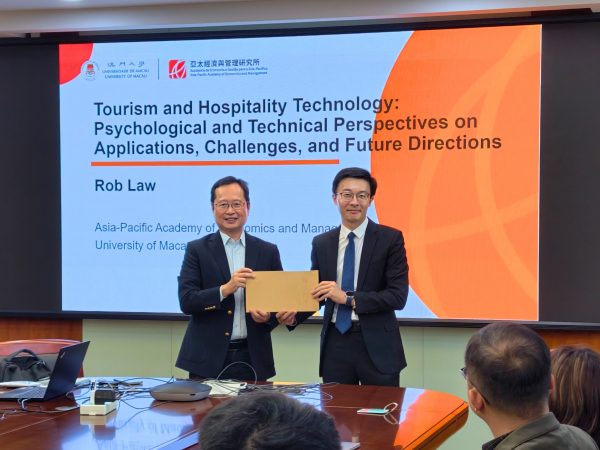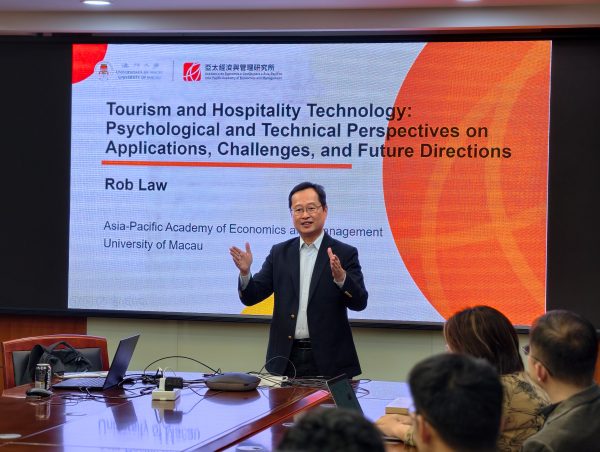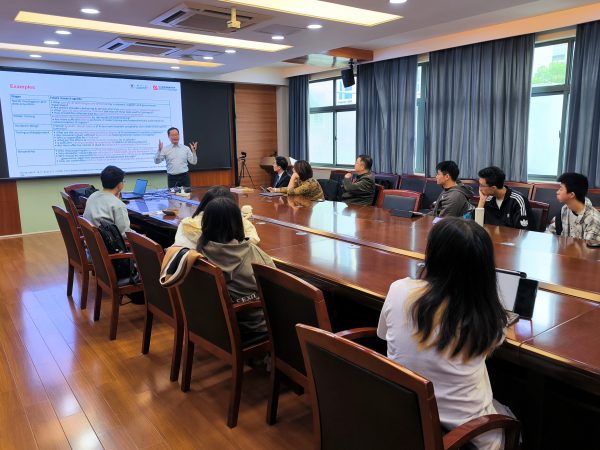
Prof. Rob Law and Prof. Poly Z.H. Sun

Prof. Law provided an in-depth analysis of the multidimensional applications of technology in tourism and hospitality

Prof. Law advocated for the future progression of tourism and hospitality technology to uphold a “human-centric” principle
From October 19 to 22, Prof. Rob Law, Deputy Director of APAEM at the University of Macau (UM), was invited for an academic visit to the School of Psychology and Cognitive Science at East China Normal University (ECNU), thereby further expanding APAEM’s academic network. During the visit, Prof. Law engaged in multiple in-depth academic exchanges and research meetings with faculty and students at ECNU. He also presented at an academic seminar titled “Tourism and Hospitality Technology: Psychological and Technical Perspectives on Applications, Challenges, and Future Directions.” The seminar was moderated by Prof. Poly Z.H. Sun, Associate Professor at the School of Psychology and Cognitive Science and Director of the Personal Informatics Systems Lab at ECNU.
The seminar covered three disciplines: psychology, information science, and tourism management. From the dual perspectives of psychology and technology, Prof. Law provided an in-depth analysis of the multidimensional applications of technology in tourism and hospitality, systematically outlining the key challenges the industry currently confronts in its digital transformation. He detailed six critical stages in the development of tourism information technology and highlighted the dual nature of contactless technology. Despite the growing attention on service robots and contactless solutions, persistent challenges include usage barriers, employee apprehension, and risk perception. Concurrently, Prof. Law stressed that as the industry advances its digital transformation, it must also confront ethical dilemmas associated with artificial intelligence—such as data privacy, algorithmic bias, and service “dehumanization.” He advocated for the future progression of tourism and hospitality technology to uphold a “human-centric” principle, ensuring that the core of service and humanistic care are not neglected in the pursuit of technological innovation.
During the Q&A session, Prof. Law and the audience engaged in lively discussions on topics such as “differences in human-machine service preferences” and “research pathways for technological ethics.” The interactive atmosphere was vibrant. This lecture not only facilitated academic exchange but also provided new insights and directions for interdisciplinary research and sustainable development in the tourism and hospitality industry.

